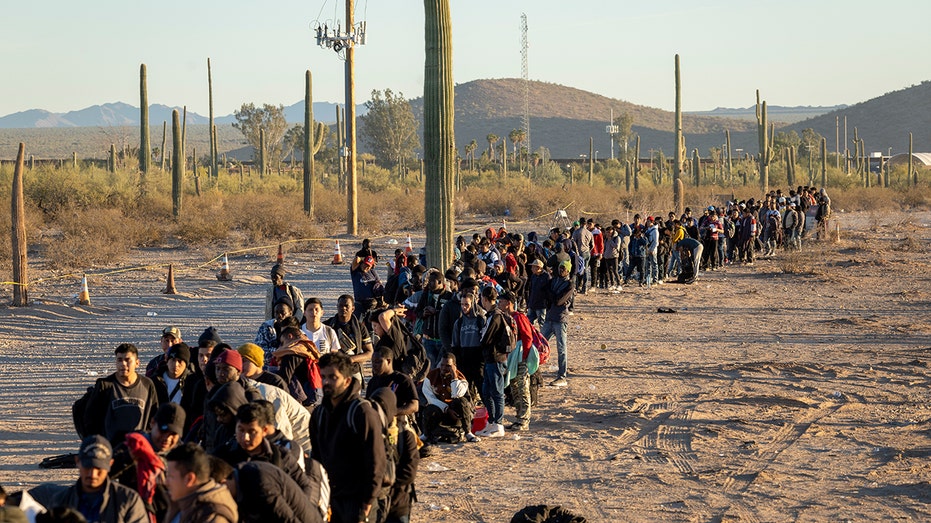I’m an immigrant and I’ve done the math. Here’s how to fix our immigration system
The immigration debate can't just be about money, but that's a big part of it. As an immigrant, I ran the numbers and they can be very good for the US or cost us over $1 trillion.

Is immigration bad for America? Americans seem to increasingly agree it is. The U.S. southern border’s record-breaking immigration crisis has — for the first time in decades — led the majority of Americans to tell pollsters they would like to reduce both legal and illegal immigration. But the presidential debate focused more on whether immigrants eat dogs than on their effect on the economy. My new research answers the question of whether immigrants impose a net burden on the federal government or help us reduce the budget deficit.
No human’s worth should be measured by their effect on a federal budget, but public policy decisions should be based on measurable facts — not stereotypes — and the effect of immigrants on government finances should factor into any decision to admit them.
My research shows that rather than harm the economy, the average new college-educated immigrant would reduce the budget deficit by over $300,000 over their lifetime. Immigrants who arrive without a college education, however, as well as all those who arrive after age 55, are net fiscal burdens on the federal government.
The group causing the most positive impact on the federal budget is immigrants who, like me, arrived in their late teens or early twenties to attend college in America and stayed for a graduate degree. We reduce the budget deficit by more than $1 million over our lifetimes, as we tend to earn the most income, work for more years but not receive any public education here, and rely less on government benefits.
Unfortunately for the U.S., new illegal border crossers (who tend to be young) impose an average net cost of $130,000 to U.S. taxpayers over their lifetime, because nearly 90% of them lack college education.
Illegal immigrants who have already been in the U.S. for a while are older, on average, and are expected to impose a net cost of $196,000 on taxpayers. My research suggests the current border crisis will increase the federal deficit by over $1.1 trillion over the next 70 years — the lifetime of most illegal immigrants arriving today.
My findings contrast sharply with the Congressional Budget Office’s recent estimate that the influx of 8.7 million unauthorized immigrants between 2021 and 2026 would reduce the budget deficit by $900 billion over 10 years. The CBO's analysis fails to consider immigrants’ total entitlement and healthcare costs because it limits its analysis to the next 10 years, excluding retirement; it also excludes critical factors such as the costs of public services including roads, public safety, and education.
The immigration status quo is a threat to America’s national interest. Most recent immigrants have entered unvetted and illegally and are likely to cost taxpayers trillions of dollars in the long run. On the other hand, young and highly educated applicants who apply legally and have highly paid job offers are forced to wait for years for green cards and visas, and many are eventually turned away.
For its own sake, the U.S. should adopt a "selectionist" immigration strategy that prioritizes highly educated, younger immigrants while limiting the number of immigrants who are likely to become fiscal burdens. This second group includes — but is not limited to — illegal immigrants.
CLICK HERE FOR MORE FOX NEWS OPINION
I estimate the U.S. could reduce its debt by $150 billion in the first year and by $25 billion every following year just by exempting graduates of Ph.D. and master's programs in STEM fields from visa caps. Allowing the foreign-born college-educated children of legal long-term residents to remain in the U.S. — instead of forcing them to self-deport when they turn 21 — would reduce the deficit by over $100 billion and then by $6 billion every year afterward.
Finally, doubling the number of H-1B visas available to highly skilled immigrants from 85,000 to 170,000 would reduce the federal deficit by $70 billion in net present value annually.
To reduce the deficit further, Congress should limit low-skilled legal immigration. The U.S. could save $100 billion by requiring that extended family visa recipients hold at least a high school diploma, eliminating the sponsorship of elderly relatives, and reassigning to highly skilled employer-sponsored immigrants the 55,000 "diversity visas" randomly allocated each year.
Finally, I looked at whether the mass deportation program promised by former President Donald Trump would be the disaster that its critics claim. My study shows that mass deportations would actually reduce the debt over the long run by over $1 trillion. But again, selectivity is better: Were a mass deportation policy combined with legalization of college-educated Dreamers, the U.S. could potentially reduce the federal debt by $1.9 trillion — nearly doubling its savings.
As the federal debt keeps rising toward unsustainable levels and the border stays wide open, America cannot afford to ignore the fiscal consequences of immigration. Milton Friedman famously said, "You cannot simultaneously have free immigration and a welfare state." My research shows that an open border will bankrupt America, but a selective immigration policy could help the United States afford the welfare state it already has.



